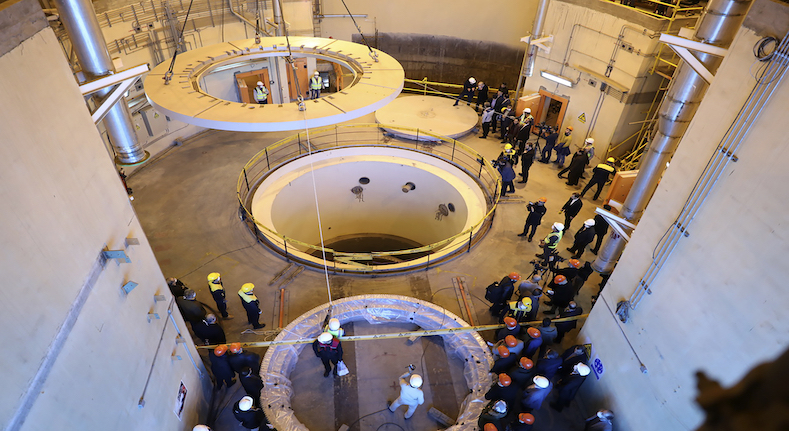US and Iran to hold indirect talks in Vienna on reviving nuclear deal
Tehran is taking a tough position on the format of the talks, portraying a hard-line image.

WASHINGTON DC, United States (Kurdistan 24) – Discussions on restoring the 2015 Iranian nuclear deal are slated to be held Tuesday in Vienna. Both the US and Iran will be involved, but they will not speak directly to each other. Rather, the other signatories to the nuclear accord, formally known as the Joint Comprehensive Plan of Action (JCPOA) – China, France, Germany, Russia and the United Kingdom – will serve as intermediaries.
Format of Discussions
US Special Envoy for Iran, Rob Malley, who was the senior negotiator on the JCPOA when it was concluded under former President Barack Obama, will head the US delegation.
The Vienna talks will be “structured around working groups,” Ned Price, State Department Spokesperson, told journalists on Monday. The European Union (EU) host of the talks will arrange the groups in which other parties to the JCPOA, including Iran, will participate.
The negotiations between Washington and Tehran are indirect, and the US will not be part of the working groups. The rationale for that awkward arrangement is the current signatories to the JCPOA will be the participants, and that does not include the US, which left the accord in 2018, when former President Donald Trump withdrew from it.
Nonetheless, the US does “remain open” to direct talks with Iran, Price affirmed, as did White House Press Secretary, Jen Psaki, when she discussed the issue with journalists on Monday.
Tehran is taking a tough position on the format of the talks, portraying a hard-line image. Iran’s position is that it will not speak with the US until Washington first agrees to lift sanctions.
Indeed, on Monday, Iran’s Deputy Foreign Minister, Seyed Abbas Araghchi, said that Iran “will have no direct or indirect talks with the Americans in Vienna.”
Rather, Iran will be negotiating “with the Joint Commission [of the JCPOA] and the P4+1,” the five other countries that are party to the JCPOA, Araghchi claimed.
Yet clearly, there will be indirect talks. As Price described them, there will be “discussions with our partners and, in turn, our partners with Iran.” He characterized that format as “a healthy step forward.”
Substance of Discussions
Price summarized the subject of the talks as involving two key issues: First, “the nuclear steps that Iran would need to take” in order for it to “return to compliance” with the JCPOA; and second, “the sanctions relief steps that the United States would need to take in order for us to return to compliance with the JCPOA.”
The JCPOA has “sunset clauses,” however, and Price also affirmed that the Biden administration wants “permanent limits on Iran’s nuclear program.” Thus, it would seem that Price articulated two somewhat different objectives, raising questions about how the US will achieve the second, more ambitious goal.
“The Biden administration wants further negotiations with Iran to extend the time limits” in the JCPOA, The New York Times explained, “as well as put limits on Iran’s missile programs and other activities.”
Iran will hold elections in June, complicating prospects for an agreement even on the lesser goal of returning both sides to compliance with the 2015 accord.
Moreover, the EU and the US appear to have different views of the agreement. Many in Washington, including the US Congress, and to some extent, even the Biden administration itself, see it as seriously deficient, as does Israel, which has long been openly critical of the JCPOA.
Yet on March 24, after a meeting in Brussels with US Secretary of State Antony Blinken, the EU’s foreign policy chief, Josep Borrell, described the JCPOA as “a masterpiece of diplomacy.”
Editing by Joanne Stocker-Kelly